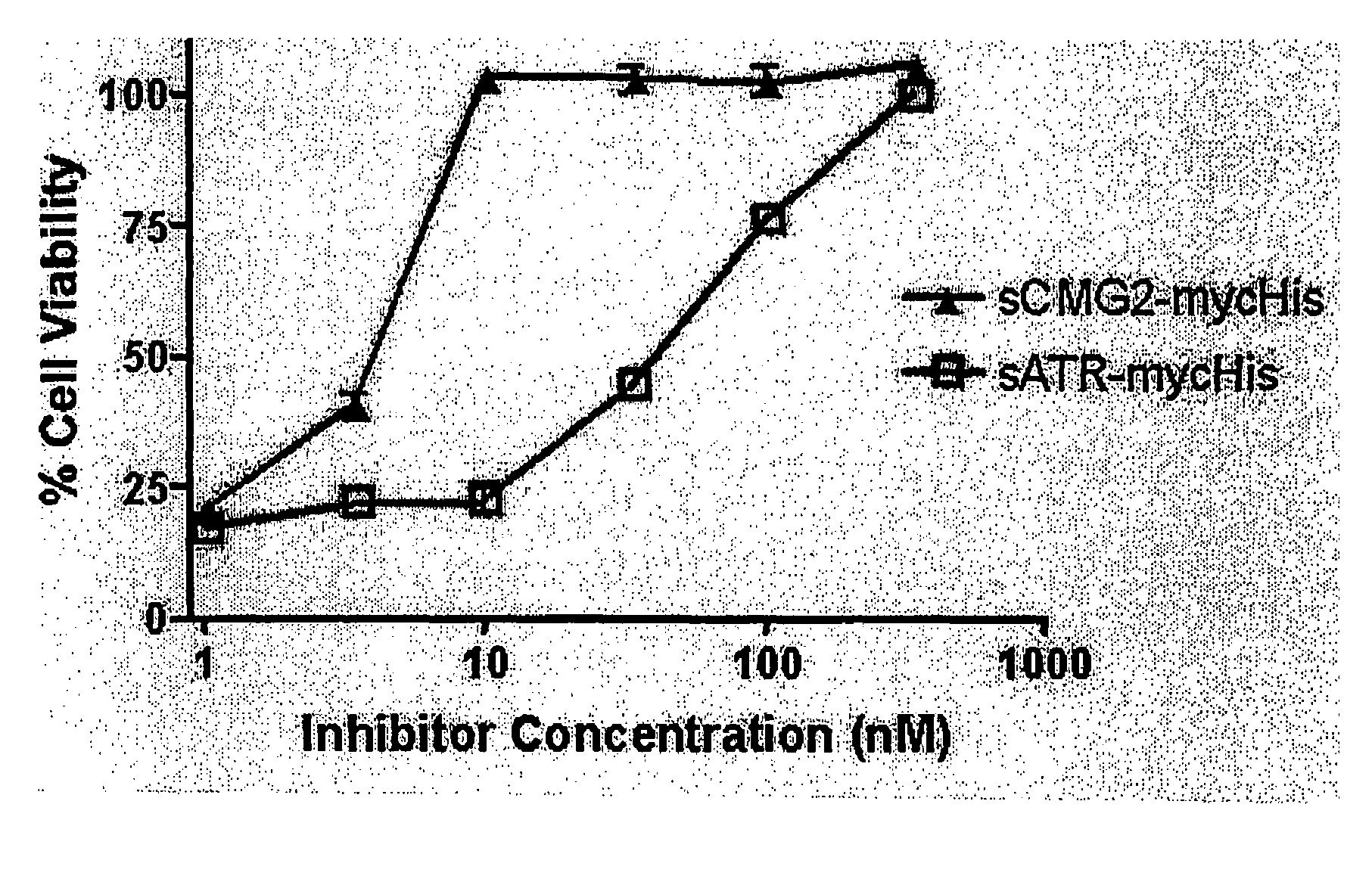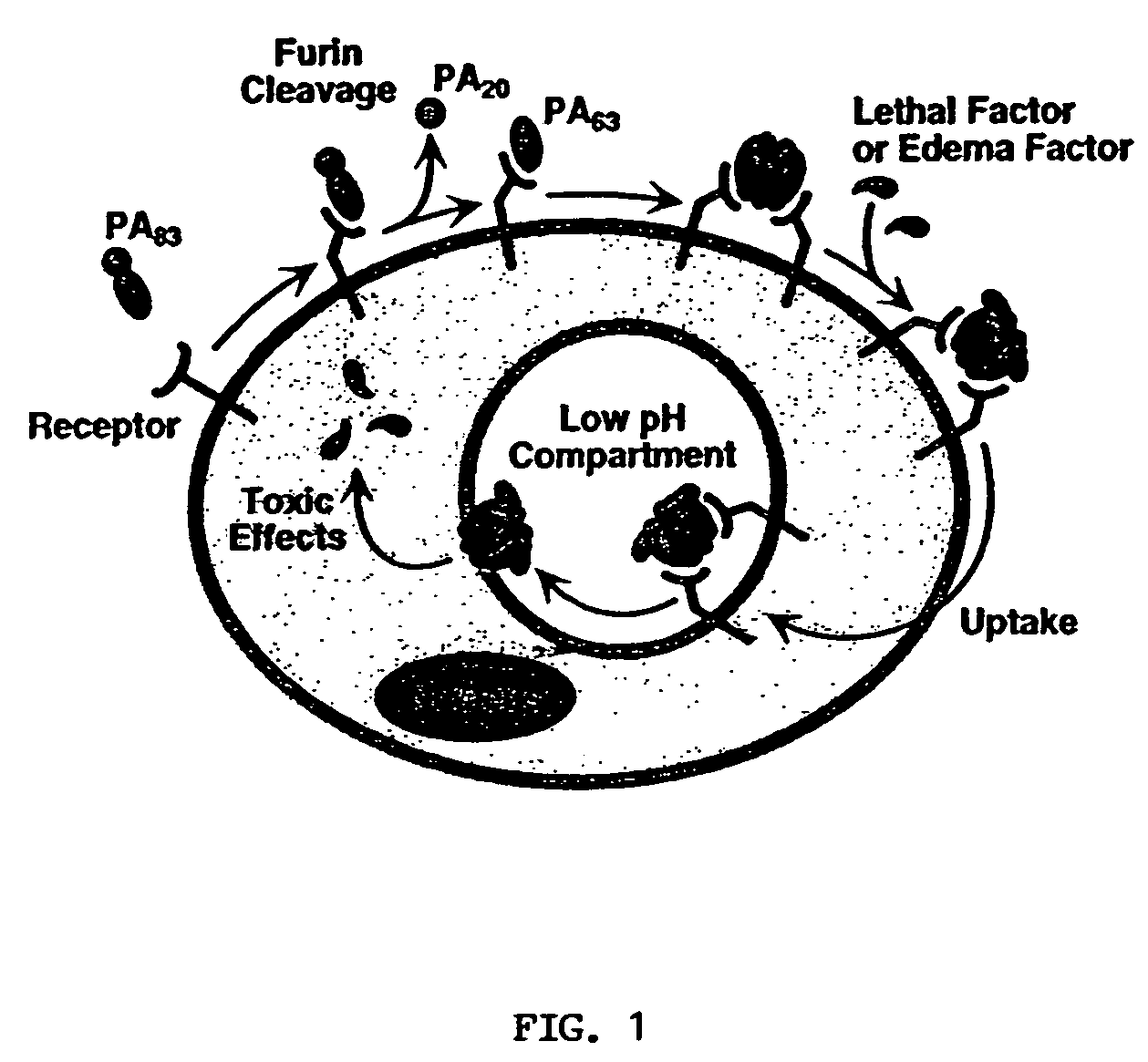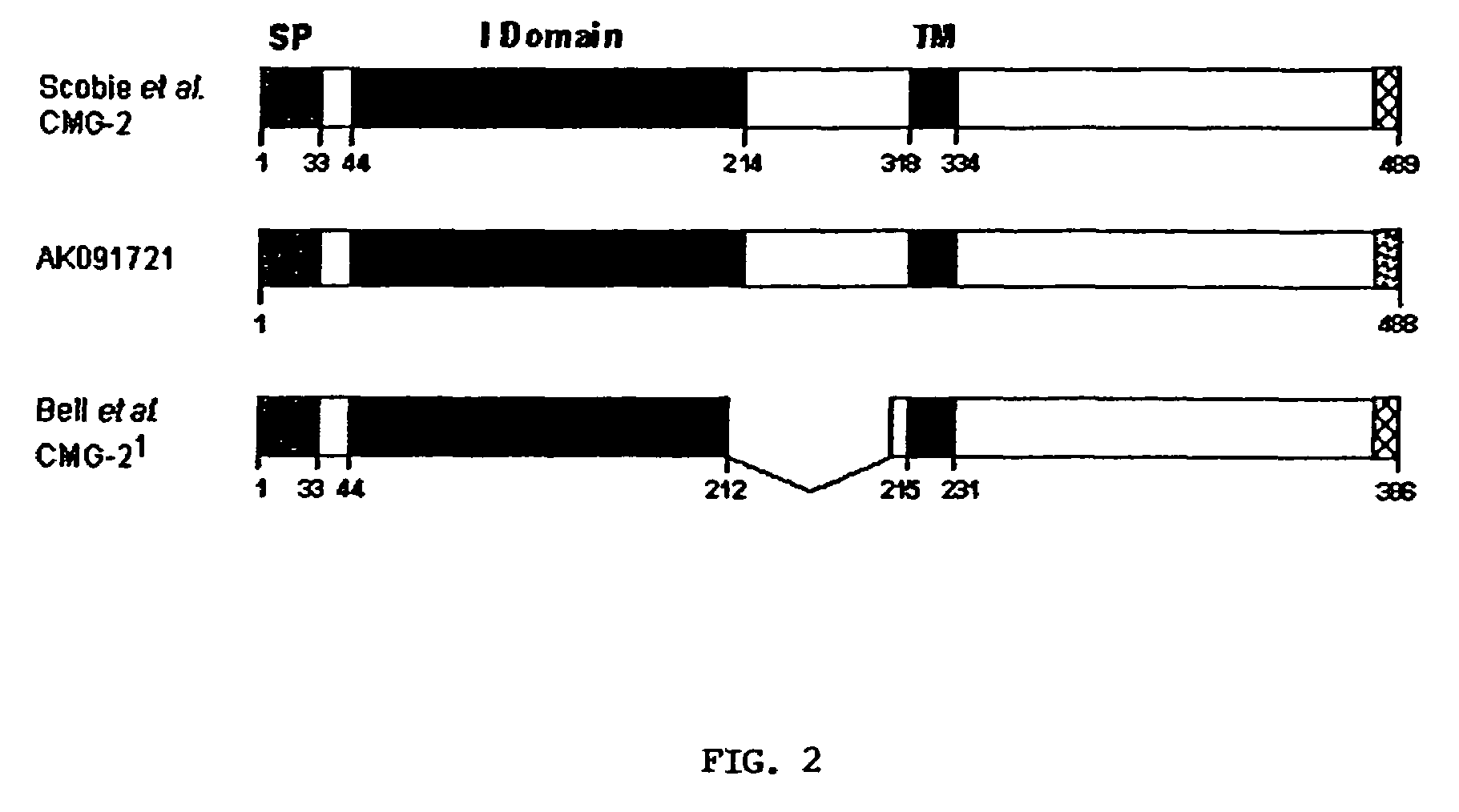Anthrax antitoxins
anthrax and antitoxins technology, applied in the field of anthrax antitoxins, can solve the problems of ineffective vaccines, gastrointestinal anthrax, and associated symptoms such as headaches, chills, malaise and muscle aches, and achieve the effects of reducing or preventing anthrax toxin-related damage, reducing or preventing damage in vivo, and reducing or preventing damag
- Summary
- Abstract
- Description
- Claims
- Application Information
AI Technical Summary
Problems solved by technology
Method used
Image
Examples
example 1
[0063]To test CMG-2 function and to facilitate protein detection, a fusion protein was generated in which EGFP was fused to the C-terminal residue of the cytoplasmic tail of the HS003 CMG-2 cDNA clone (SEQ ID NO:1). This strategy was used because it had previously been shown that a similarly constructed ATR-EGFP fusion protein was competent for PA-binding and intoxication. The gene encoding CMG-2-EGFP was expressed from a retroviral vector in CHO-R1.1 cells that lack anthrax toxin receptors as described in Bradley et al., supra, incorporated herein by reference. These cells bound PA (FIG. 5A) and were highly susceptible to cell killing by PA and LFn-DTA (FIG. 5B). Therefore, CMG-2 is a bona fide anthrax toxin receptor.
example 2
[0064]CMG2-488 (Genbank Accession No. AK091721) is different from CMG2-489 (Genbank Accession No. AY233452) in its C-terminal 12 amino acids. Although CMG-489 is only one amino longer in total length, the C-terminal 13 amino acids of CMG2-489 have been replaced with 12 different amino acids that are derived from the C-terminus of CMG2-488. Both of these CMG2 protein isoforms are encoded by naturally occurring mRNA splice variants. CMG2-488 has been shown by RT-PCR analysis to be expressed in most tissues (15 of 16 human tissues tested). Since CMG2-488 can act as a toxin receptor, this broad expression makes it likely to play a role in in vivo anthrax intoxication.
[0065]When similarly constructed and produced soluble ATR and CMG2 I domain proteins (sATR and sCMG2 respectively) were tested as inhibitors (receptor decoys) of intoxication in a cell culture model, sCMG2 was 10-fold more potent than sATR in protecting cultured cells from death (FIG. 6). This may indicate that the CMG2-PA ...
PUM
| Property | Measurement | Unit |
|---|---|---|
| equilibrium dissociation constant | aaaaa | aaaaa |
| temperature | aaaaa | aaaaa |
| temperature | aaaaa | aaaaa |
Abstract
Description
Claims
Application Information
 Login to View More
Login to View More - R&D
- Intellectual Property
- Life Sciences
- Materials
- Tech Scout
- Unparalleled Data Quality
- Higher Quality Content
- 60% Fewer Hallucinations
Browse by: Latest US Patents, China's latest patents, Technical Efficacy Thesaurus, Application Domain, Technology Topic, Popular Technical Reports.
© 2025 PatSnap. All rights reserved.Legal|Privacy policy|Modern Slavery Act Transparency Statement|Sitemap|About US| Contact US: help@patsnap.com



